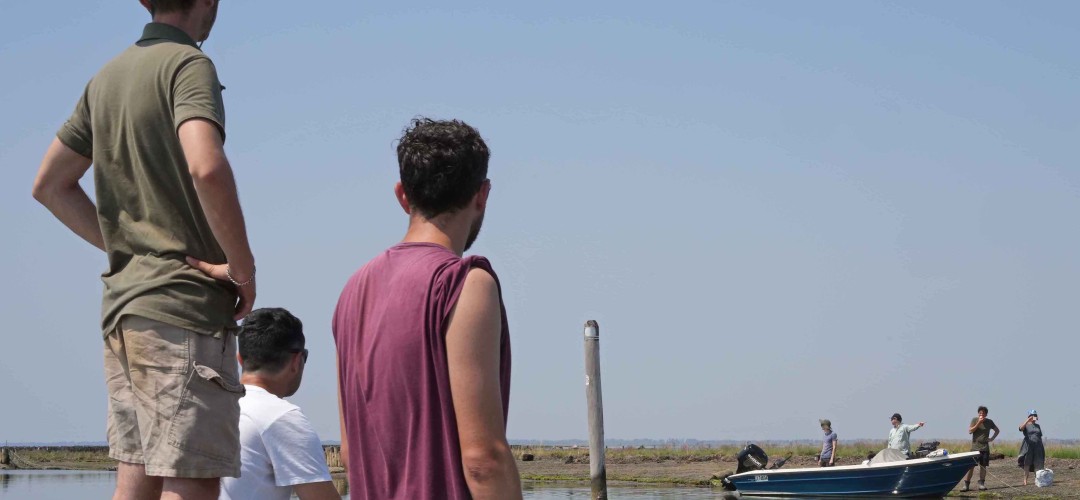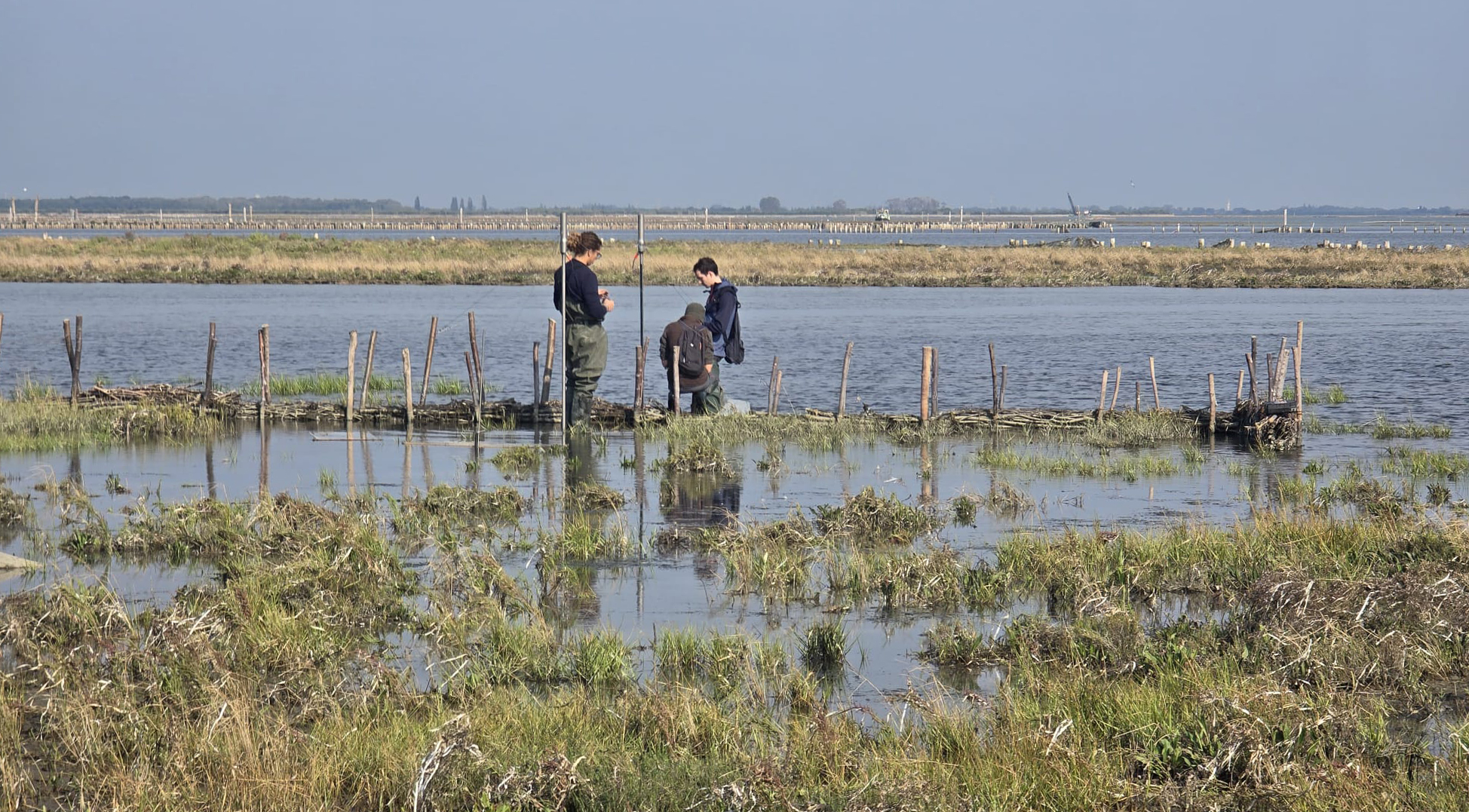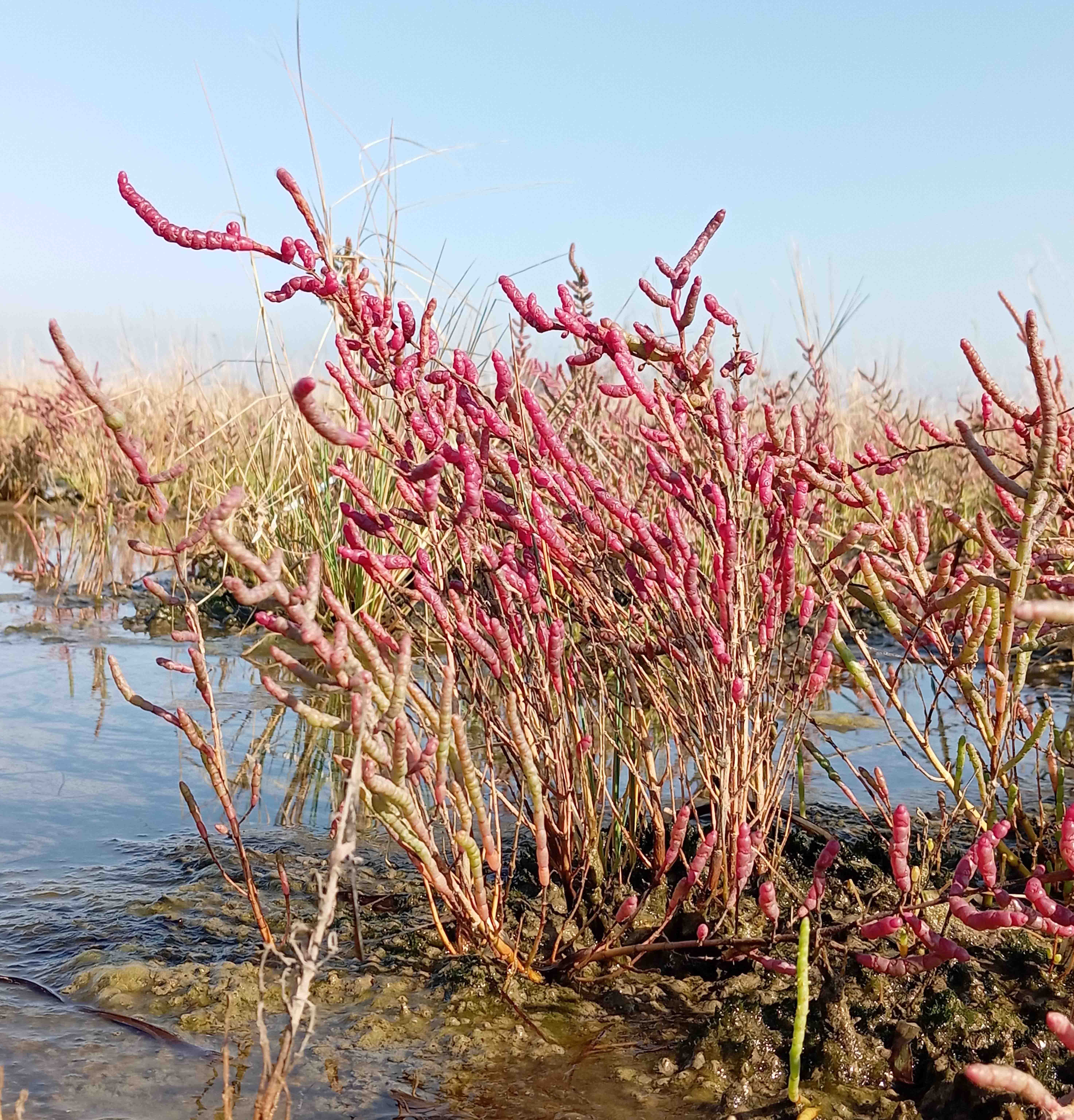New Jobs in Nature Regeneration
New Jobs in Nature Regeneration

With the intensification of field work in the lagoon, We are here Venice has expanded its workforce by involving new collaborators as Conservation Technicians, loosely called “green jobs”. Their role is to assist the team in field activities. These are extremely varied and range from monitoring to maintenance and boat handling, to the installation of structures for ecosystem restoration and other citizen science activities as well as data management and analysis. We asked one of these new collaborators, Alvise Maria Gastaldi, to share his thoughts.
“I have a degree in Environmental Sciences from Ca' Foscari University of Venice and for a few months now I have been collaborating with We are here Venice as a "green job," a new category of collaborators developed through the WaterLANDS project.
Specifically, I work as a Conservation Technician providing support during field research activities. These activities range from data collection to the installation and maintenance of equipment such as water pressure sensors, sediment sensors, and cameras. I have also had the opportunity to learn how to drive and look after their boat, a fundamental part of working in a lagoon environment.

I discovered WahV during my year of Civil Service at the UNESCO office of the Municipality of Venice. I immediately liked the research, dissemination, and local community inclusion activities promoted by the association on environmental and sustainable development issues concerning Venice and its lagoon. After a few months, I participated in a selection process and from there my experience began.
The opportunity to work alongside researchers and experts is allowing me to expand my knowledge of the lagoon ecosystem, not only from a theoretical but also from a practical point of view. In fact, observing the environment firsthand allows for a better understanding of the dynamics that affect the different habitats, being able to identify the strengths and any weaknesses of the various interventions. It is therefore essential to schedule periodic fieldwork in order to be able to promptly detect any type of phenomenon and directly observe how the ecosystem evolves.
A certain spirit of adventure and adaptation is also useful to face all the unforeseen events that can be encountered in an outdoor environment.
In this context, it is important to be flexible in knowing when to postpone an outing if conditions become adverse and to seize the opportunity if they improve. A certain spirit of adventure and adaptation is also useful to face all the unforeseen events that can be encountered in an outdoor environment.
In addition to the great deal of technical knowledge that I am acquiring each time, the spiritual satisfaction that I am deriving from this experience is no less important.

Being able to navigate the waters of the Lagoon, to touch with my own hands plants of delicate beauty such as Limonium narbonense, Salicornia veneta, Aster tripolium and observe the variety of fauna present in the different habitats, has made me finally feel part of this environment.
Once you have experienced this sense of belonging, it is impossible to remain indifferent to the fate that awaits Venice and its Lagoon."
◾